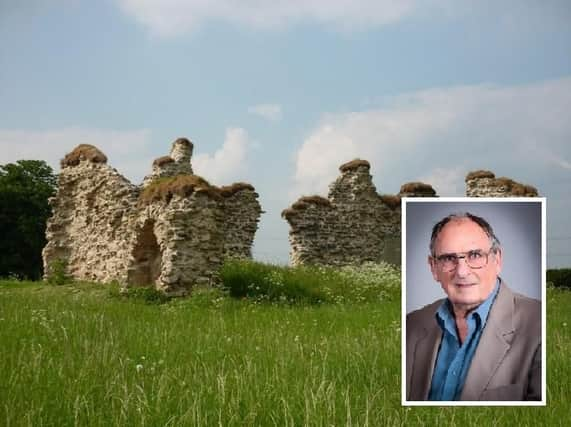Historical Huthwaite author pens tale of Nottinghamshire heroine during Magna Carta wars
This article contains affiliate links. We may earn a small commission on items purchased through this article, but that does not affect our editorial judgement.


Austin Hernon, aged 78, has a history of writing novels that explore Britain’s medieval heritage, having written books on Robert - son of Battle of Hastings legend William the Conqueror.
And now he has penned his focus on a local Nottinghamshire heroine - Matilda of Laxton, who was the Keeper of the King’s Forest, Sherwood, in the Wars of the Magna Carta.
Advertisement
Hide AdAdvertisement
Hide AdIt was when the self-confessed history-buff paid a visit to King John’s Palace in Kings Clipstone that his research really came to life - discovering her role in the wars from 1216AD.
Basing his investigation on historical chronicles and land ownership, he discovered the way she “fought off power and stayed strong to her duties”, and believes her story "should be told".
His book, Wars of the Magna Carta - The Battle for England; Women at war in Medieval England, explores the life and strength of Matilda, and her counterpart in Nicholaa of Lincoln.
He said:“When at the palace I discovered the history of both Matilda of Laxton, and Nicholaa of Lincoln, both very strong women who held firm at a time of male dominance.
Advertisement
Hide AdAdvertisement
Hide Ad“One of the reasons the Wars broke out was because King John didn’t agree with the way Magna Carta gave power to women - this is how Matilda inherited her titles.
“This book is a tale of two strong women and how they fought off power during a bloodied civil war. Laxton is a major asset to the area and should have her story told."
Mr Hernon says his books are "soundly based on facts" and are cross referenced through as many primary and secondary sources as he can find.
He added: "My books are as near to the truth as it’s possible to get. Research is cross-checked with as many sources, both contemporary and secondary, as I can discover.
Advertisement
Hide AdAdvertisement
Hide Ad"The facts remain milestones while the stories in-between will always be the results of credible speculation, and the art of the possible – or even the probable.
"Adventures, romances, political intrigues and family treacheries. Battles won and battles lost, lives lived and lives sacrificed - they all become more interesting when they are soundly based on fact, and are better stories because of it.
"The book took a lot of hard work and researching, a lot of digging through chronicles and scribes to make sense of what was going on, and the tales that are told give good insight into how people thought and acted during the period."